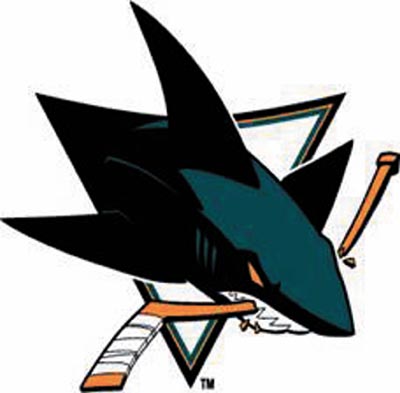It wasn’t that long ago that San Jose Sharks general manager
Doug Wilson boasted that his team was so diversely talented that it
could play
”
any style of hockey.
”
As they prepare to resume play after the All-Star break, the
Sharks might want to start playing the style of hockey where they
win the game.
It wasn’t that long ago that San Jose Sharks general manager Doug Wilson boasted that his team was so diversely talented that it could play “any style of hockey.”
As they prepare to resume play after the All-Star break, the Sharks might want to start playing the style of hockey where they win the game.
That’s if they plan to qualify for the postseason. The post-break sprint to the finish will begin with the Sharks part of a three-way tie for the final two playoff spots in the Western Conference. It also will begin with the team coming off its first losing record (in terms of point percentage) for a full month in almost four years, and with its worst record entering February since 2006.
There’s no getting around it—the Sharks have been skating in sand all season. Odd, that. They were coming off a highly successful season, postseason and offseason (when Wilson crossed off all the big-ticket items on his to-do list, re-signing Patrick Marleau and Joe Pavelski, and extending Joe Thornton). They figured to be a team smack in the middle of its window of opportunity playing at the peak of its powers.
Instead, they’re fourth in their division, just a point out of the cellar. Instead of being suited for every kind of hockey, they have trouble consistently playing any kind of hockey. They almost never outskate their opponents. They don’t outmuscle them with any regularity. When it comes to outworking the other team, well, that’s a flip of the coin.
Even when the Sharks do out-will or out-skill the opposition, it doesn’t last for long. They have perfected the third-period meltdown, and they haven’t won more than four consecutive games this season.
You can do the forensics by numbers. Their scoring is down (from 3.13 goals per game last season to 2.72, from fourth in the NHL to 15th), and their goals-against average is up (from 2.55 per game to 2.72, from eighth in the NHL to 13th).
Their power play, despite what the aesthetics sometimes indicate, is marginally more effective. Their penalty kill is worse. They’re 28th in the 30-team NHL in holding a lead after two periods. They win fewer than half the games in which they outshoot their opponent.
But the numbers smell more like effect than cause. There appear to be only two ways, beyond the perennial need for a proven defenseman, to explain what’s going on with these guys: They’re either not as good as they need to be, or not as interested.
As damnations go, the latter is more palatable. Thus, the Sharks have beat themselves up on a regular basis—for not being sufficiently assertive or intelligent, for playing only parts of games, for not following the plan. That’s not a flattering self-portrait, but at least it leaves room for improvement.
But what if this is as good as it gets? What if the Sharks’ veteran core—Marleau (31 years old), Thornton (31), Dany Heatley (30) and Dan Boyle (34) — either has plateaued or is regressing? Marleau, Thornton and Heatley all are on pace for fewer points than they have scored in years. All four are underwater in the plus/minus ratings.
And get this—they’re owed a collective average of $27 million in each of the next three seasons. That’s 45 percent of this season’s salary cap.
Of Next Generation core players Pavelski, Devin Setoguchi, Ryane Clowe, Mark Vlasic and Doug Murray, only Clowe is performing above his historical levels across the board.
Not as good as they need to be, or not as interested? Call it one way and Wilson takes a hit for committing so hard to the Core Four. Call it the other way, and everyone gets dealt a slice of accountability:
Coach Todd McClellan for failing to find a way to get the players to emotionally invest. The players, for being satisfied. Wilson, for leaving himself little more than tinkering-around room under the cap ($1.043 million, according to nhlnumbers.com).
Of course, there’s another way this story ends. The Sharks flip a switch, find their mojo and go roaring into the playoffs as the team nobody wants to face. They re-establish themselves as an elite franchise, rendering the first two-thirds of the season a footnote in the process. They make this analysis look like a half-baked panic attack in retrospect.
But based on what we’ve seen to this point in the season, that’s simply not their style.
— Column by Gary Peterson, Contra Costa Times










